Bing bang boom, you just launched your startup.
Congratulations!
I don’t mean to ruin the mood, but now’s not the time to celebrate.
For the following months, prepare to work like you’ve never worked before.
You see, the internet isn’t exactly friendly to new businesses.
There are literally millions of businesses in the world. Thousands are probably competing for your target audience’s attention.
To grow your startup, digital marketing is going to be one heck of a challenge.
The good news is, there’s an abundance of tools that can help newfound businesses achieve their marketing goals.
Here are some of the best.
Monitor your website’s performance and analytics
Contents
- Monitor your website’s performance and analytics
- 1. Google Analytics
- Noteworthy Google Analytics tools for marketing
- 2. PageSpeed Insights
- Noteworthy PageSpeed Insights features
- Other performance tracking tools
- Be active in Instagram (and every other social network)
- 3. Vista Social
- Noteworthy Vista Social features
- 4. Canva
- Noteworthy Canva features
- Other social media marketing tools
- SEO and Email Marketing
- 5. SEMrush
- Notable SEMrush features
- 6. Constant Contact
- Noteworthy Constant Contact Features
- Other SEO and email marketing tools
- Conclusion
Let’s start with tools that can help track your website’s performance.
1. Google Analytics
Here’s the thing: If your startup has a website, you need Google Analytics to measure growth and create improvements.
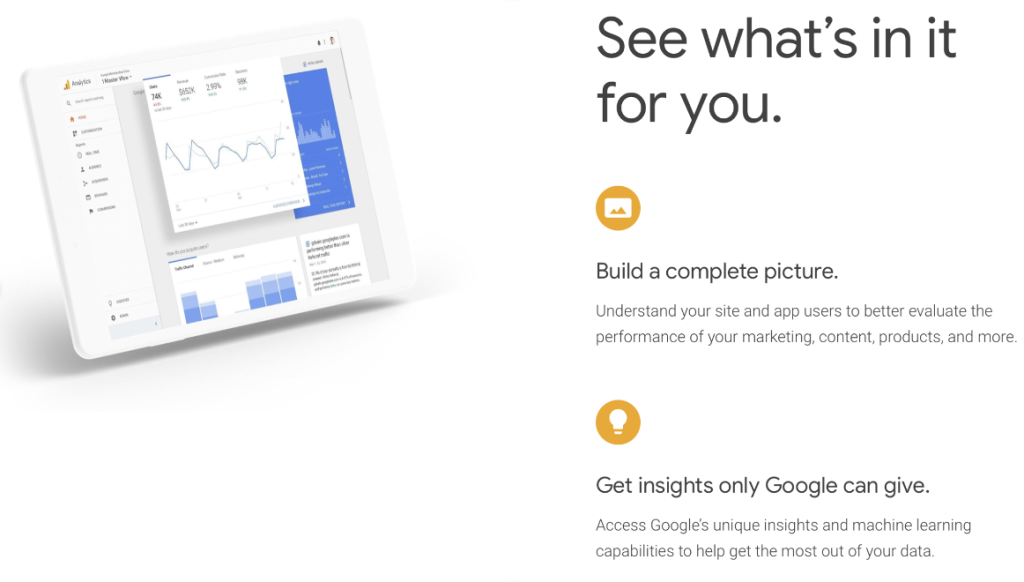
Google Analytics is an all-in-one performance tracking and optimization platform. It allows you to measure key website metrics, such as traffic, session duration, bounce rate, and pages per session.
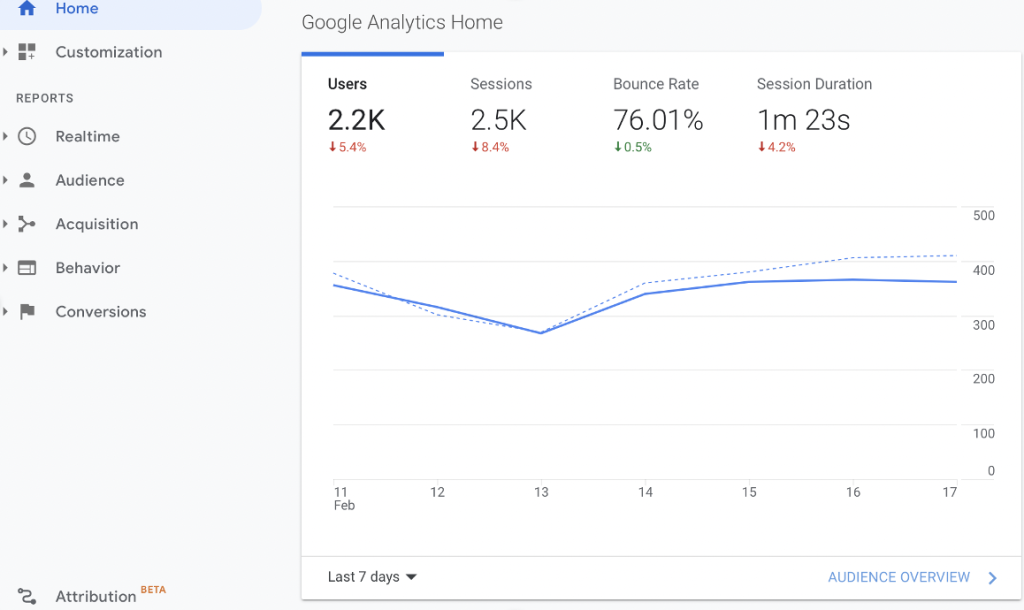
You can also use Google Analytics to get to know your audience better and identify your top-performing pages. Both tools offer actionable insights on how to craft a content strategy that works in achieving your website goals.
Noteworthy Google Analytics tools for marketing
- Goals — Google Analytics allows you to track the completion of conversion goals, including purchases, signups, and bookings. The platform also lets you create custom goals through the Google Tag Manager, like scroll depth and element visibility.
- eCommerce tracking — With some setup, you can turn Google Analytics into one of the best eCommerce marketing tools. It allows you to track sales activities on your online store from within the platform, making it the single source of truth for eCommerce brands.
2. PageSpeed Insights
The second tool isn’t directly tied to marketing, but it will make sure you reap the full benefits of your campaigns.
After all, loading speed is important if you want your audience to have a good experience on your website.
PageSpeed Insights is a free tool from Google that thoroughly analyzes your website’s performance. All you need to do is enter your website’s URL, click ‘Analyze,’ and watch the magic happen.
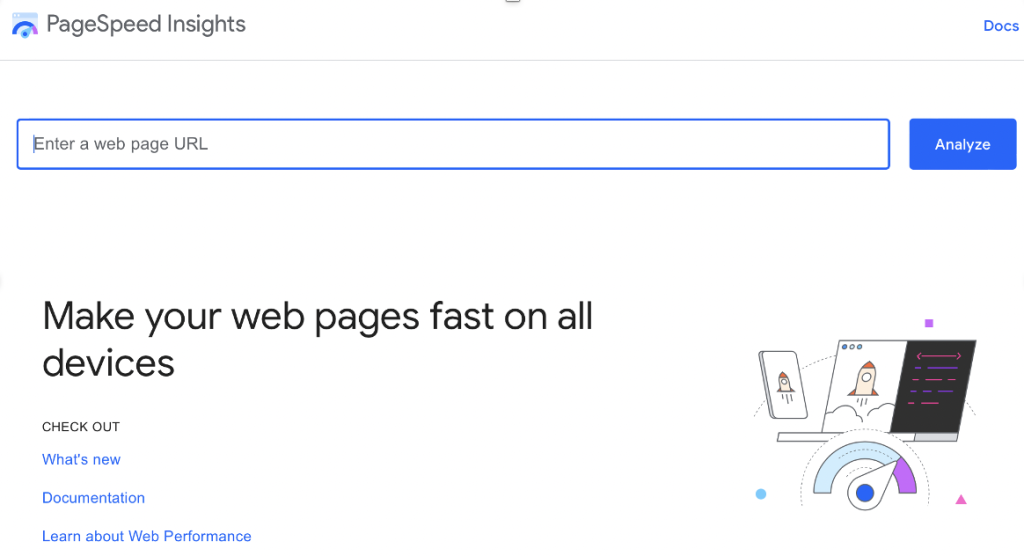
Once the analysis is complete, it will present you with a detailed report along with optimization suggestions.
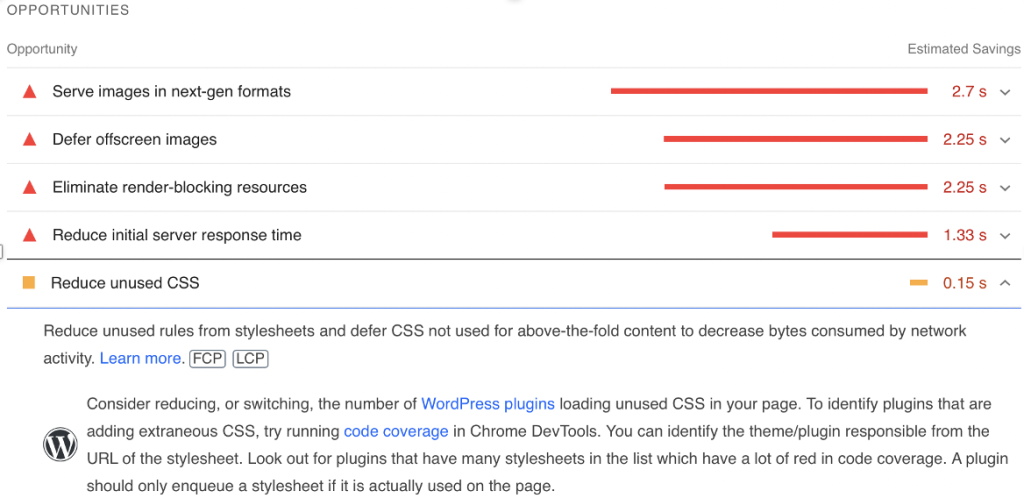
Noteworthy PageSpeed Insights features
- Learning resources — To help you and your team optimize your website’s performance, each recommendation includes links to relevant learning resources. In some cases, PageSpeed Insights will also point you to tools that can fix performance-related issues.
- Check performance on desktop and mobile — PageSpeed Insights generates comprehensive performance reports across multiple devices. This is extremely important now that more people browse the web on mobile devices than desktops.
Other performance tracking tools
- Hotjar
- ClickMagick
- StatCounter
There are loads of FB, Twitter, YouTube, and Instagram growth services that can help build your startup’s presence on social media.
Check out some of the best ones:
3. Vista Social
In terms of social media management, Vista Social can be described in three words: sophisticated, cost-effective and comprehensive.
Vista Social is an all-in-one social media management platform with all the features you need to grow your social reach. It will help you create a social media posting schedule, track conversations, use social media listening, and measure engagement.
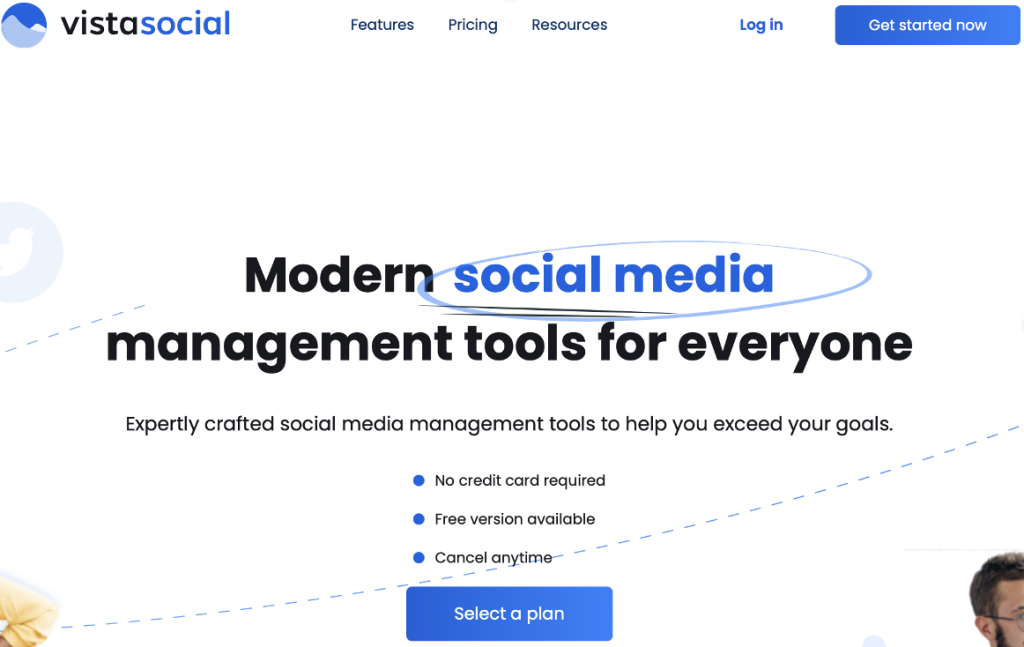
Another feature that makes Vista Social special is review management.
Basically, it consolidates all user reviews on your startup from sources like TrustPilot, Facebook, Google My Business, and so on. You can then respond to these reviews and showcase them on your website.
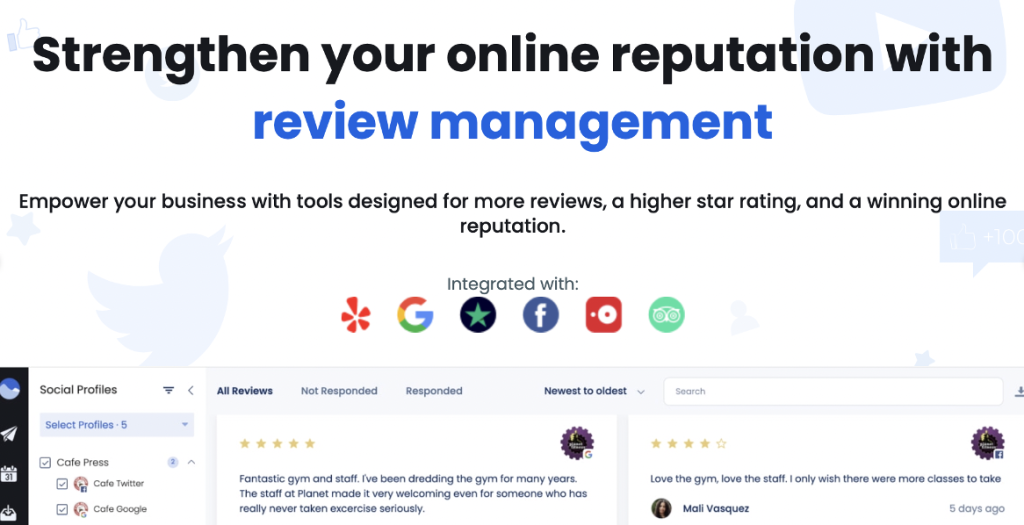
Noteworthy Vista Social features
- Automate posting — You can use Vista Social to build an automated posting schedule for your social media accounts. This allows you to queue up content in bulk without worrying about specifying a publishing time for each post.
- Smart publisher — Vista Social’s smart publisher automatically pulls content from specified sources and adds them to your content queue.
Due to Vista Social’s comprehensive set of features and its affordability, it has become the go-to Instagram tool for marketing agencies and brands.
4. Canva
When it comes to social media marketing, visual content is important to help your startup stand out in your audience’s feeds.
Canva is a drag-and-drop graphic design tool you can use to create eye-catching visuals in minutes. All you have to do is pick a format, add a background, and combine elements (text, shapes, photos, etc.) to create original designs.
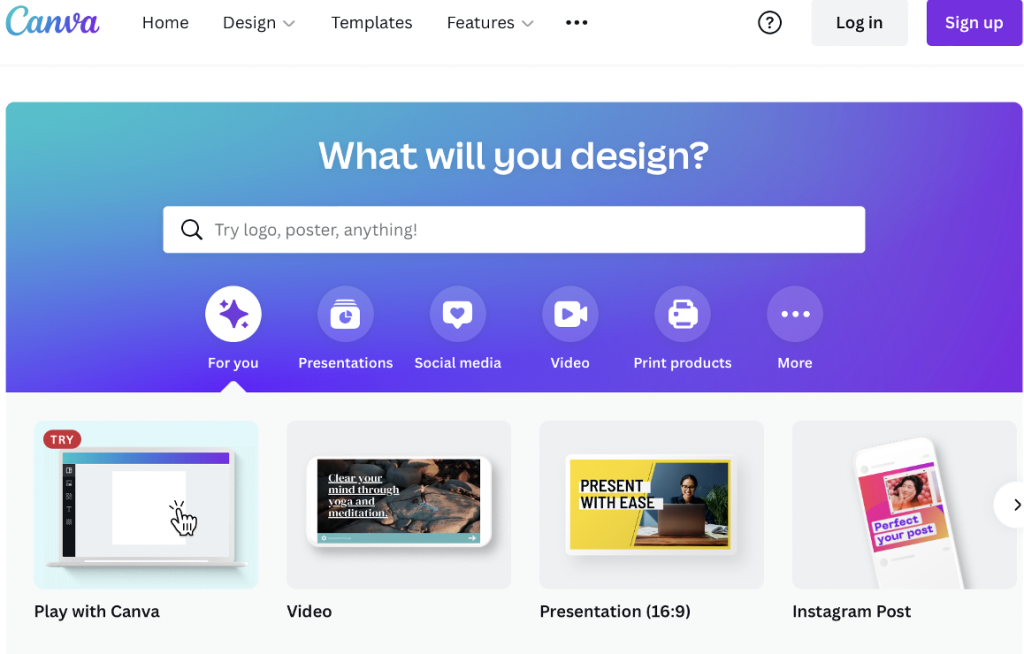
To streamline the design process, Canva also comes with professionally-designed templates for different types of visuals. You can create designs for Instagram posts, Facebook posts, Pinterest pins, and more.
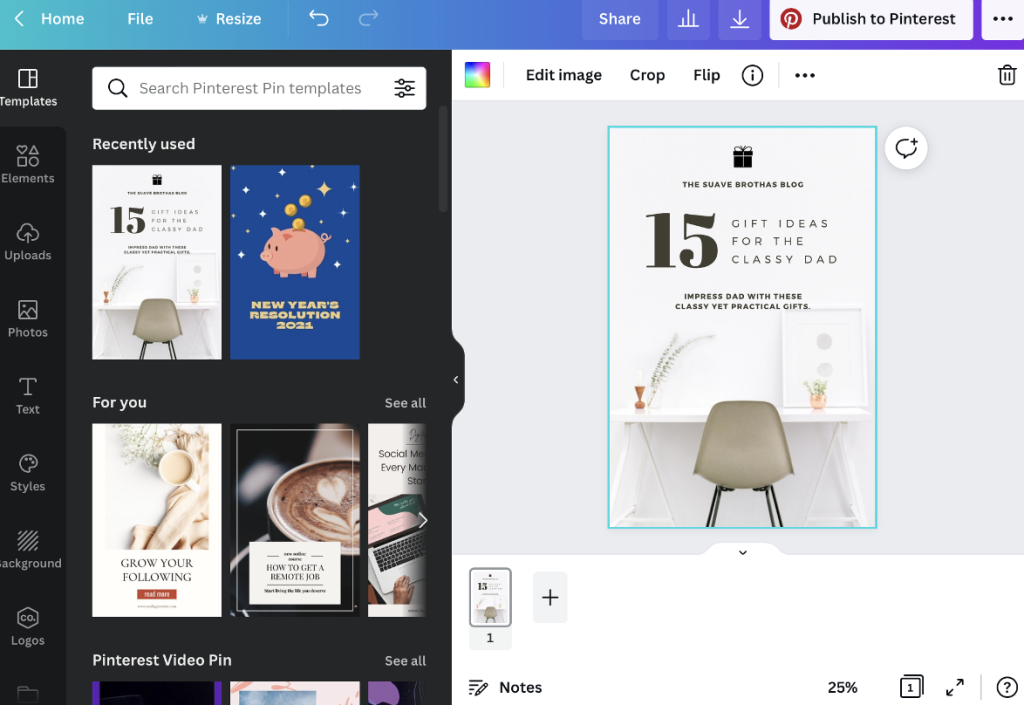
Noteworthy Canva features
- Image filters and effects — Instantly stylize your content on Canva with customizable filters. You can also apply effects like the background remover, duotone, paint effects, and pixelate.
- Animations, videos, and audio — If static content isn’t enough for your marketing goals, you can use Canva to create multimedia content with videos, animations, and audio clips. The simplified interface makes it easy to complete projects even if you have zero video editing experience.
- Rafflecopter
- Wishpond
- trendHERO
SEO and Email Marketing
For online businesses, SEO and email marketing go hand in hand.
SEO lets you attract organic traffic, which you can convert into subscribers or customers through email marketing.
5. SEMrush
SEMrush is undeniably one of the biggest household names in the SEO space.
It’s a powerful online visibility management tool that can analyze every single facet of your online presence.
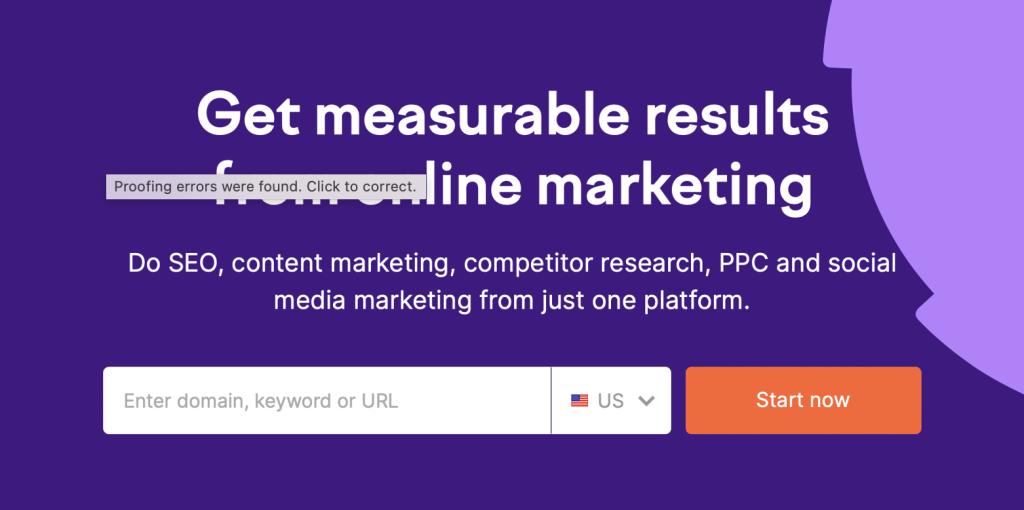
SEMrush can help you with practically every strategy for building online visibility — from keyword research to link building. It also offers extensively detailed reports on your audience, content, competitors, search rankings, and many more.
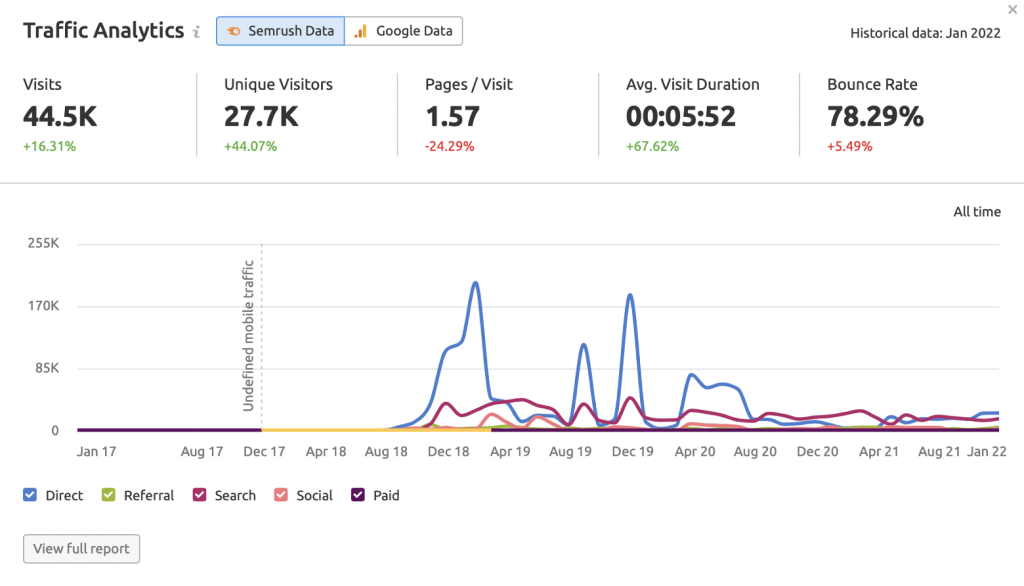
Notable SEMrush features
- Keyword Magic Tool — SEMrush’s famed Keyword Magic Tool can unveil hundreds of potential keyword opportunities for startups. In addition to keyword ideas, the tool also tracks important metrics like keyword difficulty, monthly search volume, search intent, and average Cost Per Click (CPC).
- Link Building Tool — SEMrush can help you find, connect, and acquire potential link sources from within the platform. You can also keep a close watch of your backlink profile to make sure the links you built stay online.
6. Constant Contact
A proven way to turn traffic into leads is to build an email list, which can be done with platforms like Constant Contact.
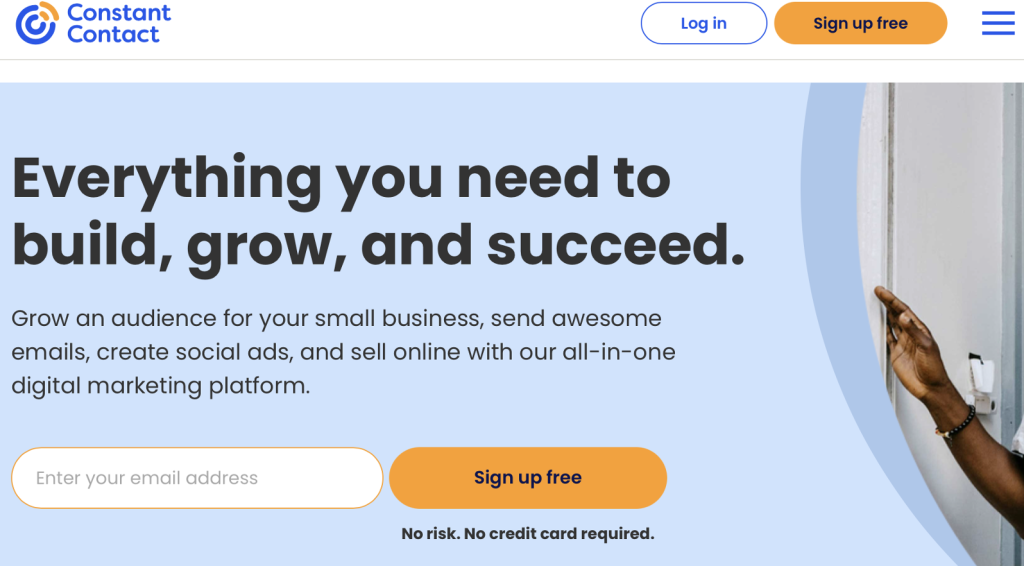
Constant Contact lets you build professional-looking emails and newsletters using premade templates and layouts. Of course, you can use the tool to broadcast the emails you’ve created and manage your email marketing campaigns.
By the way, Constant Contact has one of the best email analytics tools available on the web. This is perfect for startups who are still learning the ropes in the tricky email marketing landscape.
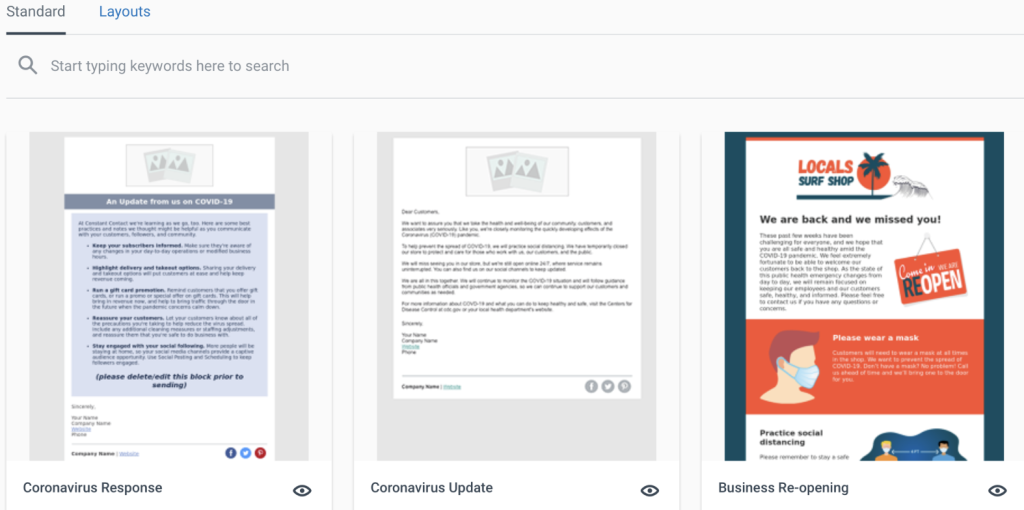
Noteworthy Constant Contact Features
- Email automation — Constant Contact lets you automate timely, high-impact emails through automation campaigns. You can send birthday greetings, follow-up with “thank you” emails, and more.
- Built-in page builder — With Constant Contact, you don’t need a separate platform to build landing pages and survey pages. The tool also lets you create dynamic opt-in forms that will convert visitors into email subscribers.
Other SEO and email marketing tools
- Ahrefs
- ActiveCampaign
- MailChimp
Conclusion
The infancy of a startup can be both exciting and exhausting.
There’s much work to do — even more things to learn.
Using marketing tools built for ease of use can help on both fronts. Just remember to identify clear marketing goals so you don’t overload on unnecessary tools that will only overcomplicate your campaigns.


